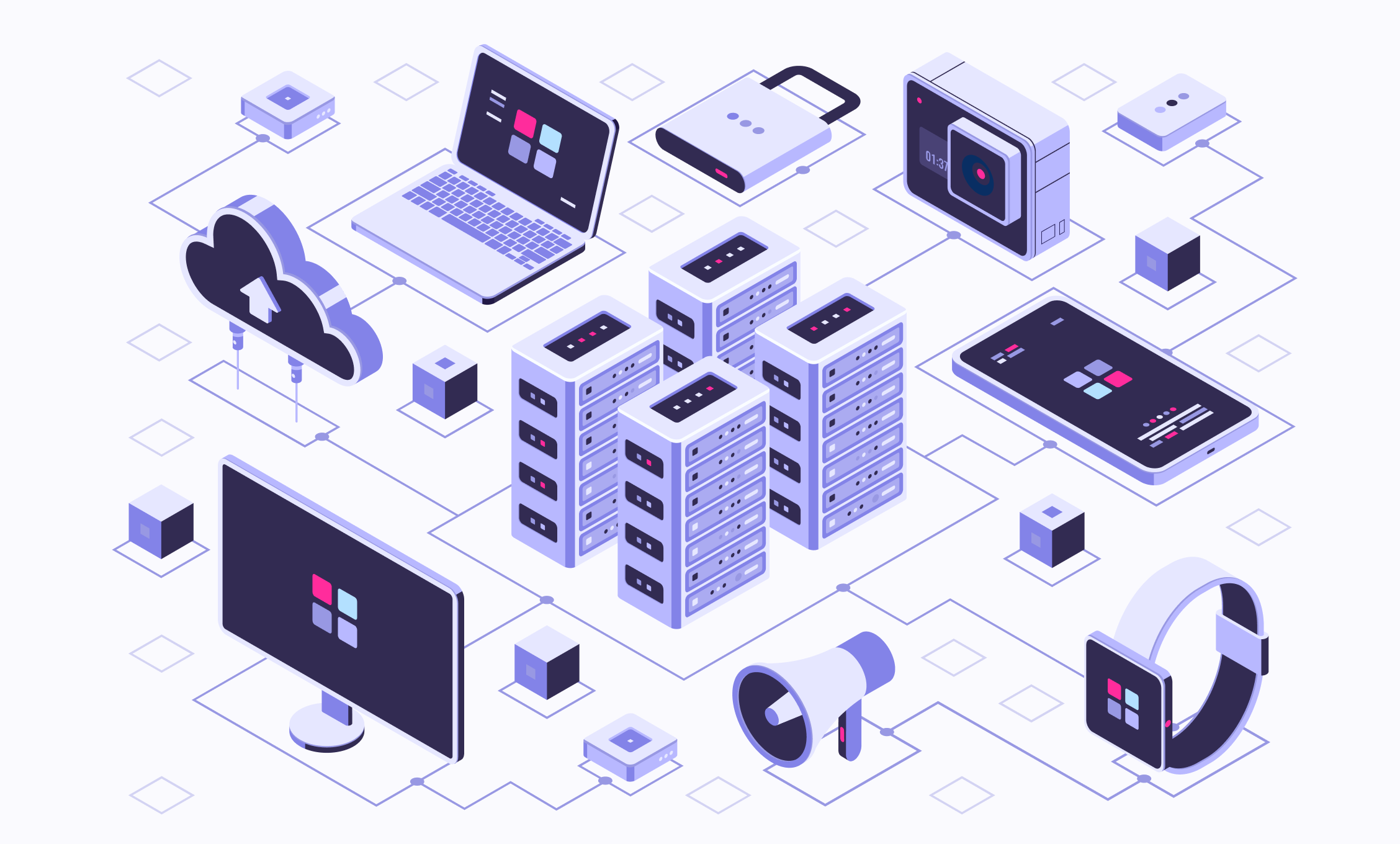As many industries and sectors continue to be redefined and reshaped by the cloud, financial services have some of the greatest potential to excel with the cloud. Cloud banking is becoming increasingly popular among startups and established financial institutions, as it offers many benefits for businesses and consumers and improves customer experience. There’s no wonder that bank leaders pay more and more attention to this evolving technology.
However, one of the main concerns many people have about cloud solutions, as with all new technologies, is information security. That’s why businesses invest in this area, leading to a 33.1% annual growth in the banking cloud security market.
Here, we will explore the features and benefits of digital banking industry solutions and discuss some of their main security concerns relevant to the financial sector. Once you understand both sides of the topic, you can decide whether or not banking in the cloud is right for you.
In this article:
Key Points About Data Storage Methods
Every banking app or solution needs a way to store and access the vast amounts of data generated. Traditional methods, such as storing data locally on a server, are no longer an option due to increasing security concerns and limited space.
A RightScale report shows that over 90% of businesses use a public cloud, but 72% of respondents also use private cloud solutions.
One of the most popular ways to manage this data is with cloud storage. But there are still several methods you can employ.

1. Direct Area or Direct Attached Storage (DAS)
DAS is a storage device directly attached to the server or computer. This method is easy and affordable, but it has limited scalability and is less secure than other solutions.
Pros:
- DAS is inexpensive and easy to set up and manage.
- The system connects to a DAS device, which gives the PC backup capabilities.
Cons:
- DAS is not as scalable as other solutions.
- Users may experience many security issues, like phishing attacks, more frequently than with other methods.
- Such devices can’t be accessed remotely and have limited sharing access to other systems or devices.
- They have to remain close to the owner’s machine.

Forbes recommendation
Building BNPL Solutions: Full Guide From Our CTO
BNPL is now the biggest trend in e-commerce, yet there are things to consider. Our CTO tells all secrets to his Forbes readers and you
Check it out2. Network-Based Storage (NBS)
NBS connects to a central server, giving users access to the cloud storage system. This is an ideal option for businesses with larger data needs, as it allows them to scale their storage capacity.
Pros:
- NBS is scalable and accessible from anywhere in the world; multiple systems can access it simultaneously.
- This solution is perfect for large organizations or companies that need fast and secure access to their data.
Cons:
- NBS can be more expensive and complex to manage than other solutions, and it requires higher upfront costs.
- It sometimes lacks the security features necessary for sensitive banking data.
3. Cloud-Based Storage (CBS)
CBS offers the highest data security and access level. CBS is hosted on a remote or centralized server and can be accessed from anywhere in the world.
Pros:
- CBS is highly secure and scalable, making it ideal for financial services organizations that need to store and access large amounts of sensitive customer data.
- This solution is user-friendly and easy to access from anywhere at any time.
- It is often more cost-effective than traditional storage methods.
Cons:
- CBS can be expensive to set up and manage, especially for smaller businesses or startups.
- There may be concerns about the privacy and security of user data, as it is often hosted by third-party companies.
Ultimately, deciding which cloud storage method to use for your banking cloud application will depend on your specific needs and preferences. However, if you plan to provide online financial services, then using the services of a cloud provider is probably the best way to go.
Still, it is important to consider all of the risks and benefits of each option before making a final decision about FinTech development services. Let's dive into more details regarding the features so you can decide whether it is the best option for your needs.


Thank you for Subscription!
Benefits of Cloud Computing for Banking
Using cloud services for your banking app comes with numerous benefits, including:
- Increased security. Cloud storage uses many advanced data security features, such as access management and encryption, to ensure that user data is always protected from external threats.
- Easy scalability. Due to the decentralized and scalable nature of cloud storage, financial institutions can easily add more resources as their data needs grow.
- Cost reduction. Cloud computing allows businesses to reduce their IT infrastructure and staffing costs and improve efficiency by automating certain processes.

While cloud computing in banking does offer many benefits, there are also some risks to keep in mind.
Cloud Security in Banking: Main Concerns
Some of the main security concerns for cloud implementation include the following:
- User privacy. Since many app users don’t have the best cyber security hygiene, using weak passwords and public networks, their privacy is a concern for cloud banking service developers.
- Security system misconfiguration. If not properly configured or maintained, security systems may leave sensitive data vulnerable to attacks.
- Concentration risk. If all data is concentrated on the same cloud, a financial institution becomes utterly dependent on a single CSP’s reliability and security.
- DDoS (distributed denial-of-service) attacks. These types of attacks can be launched against cloud systems, putting your data at risk.
Despite these concerns, cloud computing remains one of the most popular and effective data storage solutions for banking apps. Here’s why.
Need a hand?
Check out the cloud services we provide!
Cloud Banking Security Features That Solve Concerns
To address some of the security risks, a cloud provider may offer different security features, such as:
- Encryption. Cloud security solutions with bank-level encryption help keep even the most sensitive information safe.
- Industry-standard security certifications. Financial institutions that use cloud storage solutions can look for those compliant with industry security standards, such as SOC (Service Organization Control) Type 2.
- Data backups. By regularly backing up data to multiple locations, financial service providers can minimize the risk of losing data during cyber attacks or other threats.
And also,
Conclusion
Building new applications has become safer and more effective in the banking sector thanks to the cloud and banking cloud security features. Furthermore, while these applications do not jeopardize client data—quite the opposite—what businesses construct on top of cloud services is still their duty.
Overall, if you are looking for a secure and scalable data storage solution for your banking app, then cloud computing is a good option in your way of digital transformation. While some potential security concerns are associated with this approach, these risks can be mitigated through industry-standard encryption and other security features.
Overall, the benefits of banking in the cloud outweigh the risks, making it the best choice for financial institutions that want to stay ahead of their competitors.

Useful tips
Get The Right Tech Partner
Make sure you ask your managers the right questions and also provide the right answers to choose the best outsourcing technical vendor ever.
Let's see




















